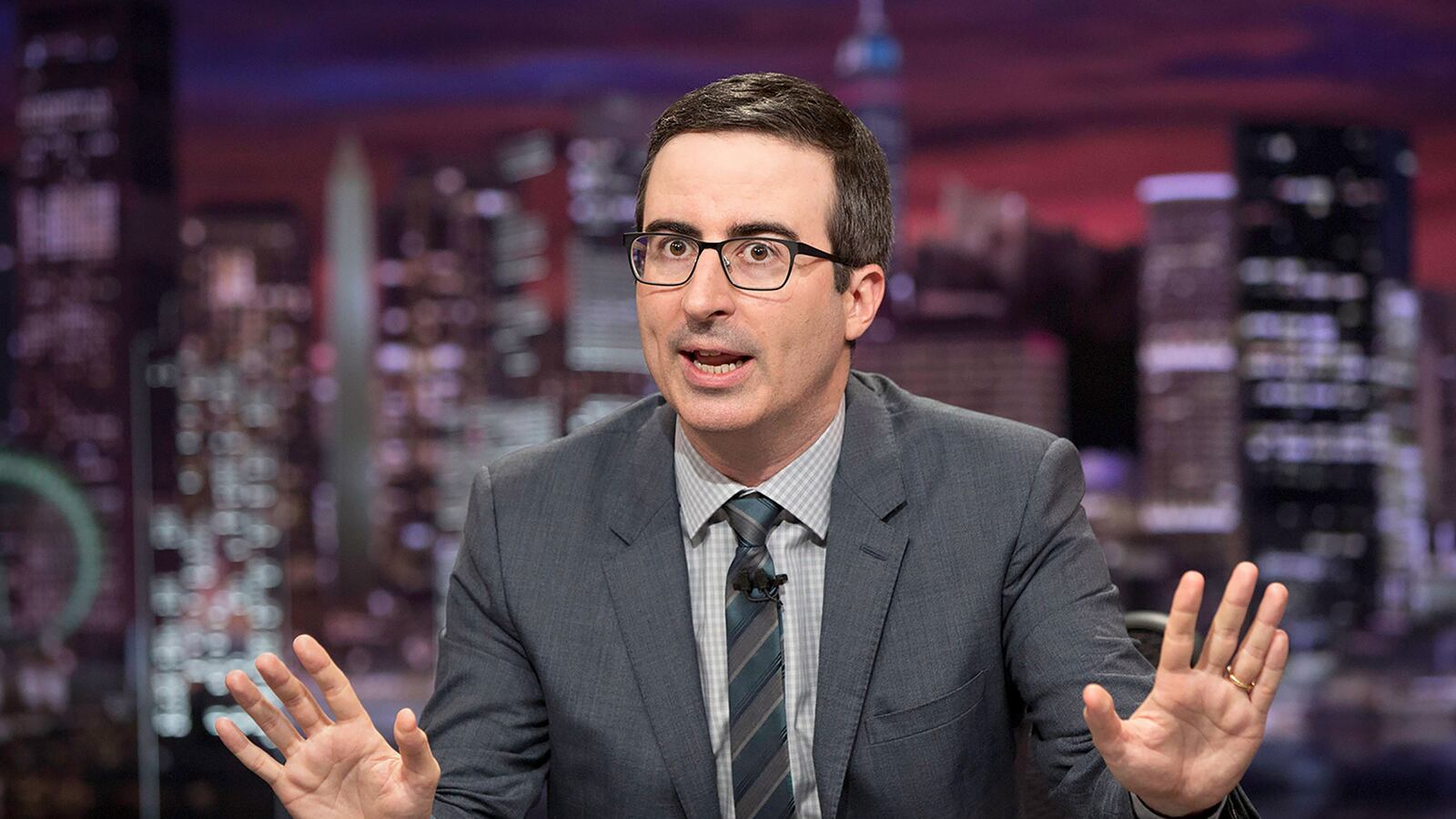Last week, President Trump, who cast himself on the campaign trail as a non-interventionist, pulled a complete 180, launching 59 Tomahawk cruise missiles at the Shayrat air base outside of Homs, Syria. The president claimed to have been moved to action after viewing the horrifying images of the victims—many women and children—of a chemical-weapons attack in the province of Idlib. The civilian-targeting attack is said to have been ordered by Syrian President Bashar al-Assad, and the planes carrying what is believed to be the deadly (and banned) nerve agent sarin took off from Shayrat.
On Sunday night, in addition to sending a message to Bill O’Reilly and President Trump about sexual harassment, comedian John Oliver criticized the borderline “orgasmic” reactions to the Thursday night airstrikes by the cable news media—particularly that of disgraced NBC anchor Brian Williams, who has a history of fabricating stories.
“We see these beautiful pictures at night from the decks of these two U.S. Navy vessels in the eastern Mediterranean. I am tempted to quote the great Leonard Cohen: I’m guided by the beauty of our weapons. And they are beautiful pictures of fearsome armaments,” Williams announced.“What are you talking about?!” exclaimed Oliver. “It is a little ironic to see Brian Williams on MSNBC talking about the ‘beauty of our weapons’ because that is not a phrase anyone would use if they had, for instance, ever been in a helicopter that was hit by ground fire.”
Oliver was taking a shot at Williams for lying about his experience while covering the 2003 invasion of Iraq. Williams was ultimately suspended for six months and demoted from anchor of NBC Nightly News to MSNBC. But Williams wasn’t the only one who praised Trump’s airstrikes against Assad. Senators John McCain and Lindsey Graham both came out in favor of the strikes, while Sen. Chuck Schumer, one of Trump’s most outspoken critics, called it “the right thing to do.”
“But there are some serious questions that need to be answered regarding these airstrikes, which were in retaliation against Syrian dictator Bashar al-Assad’s apparent use of chemical weapons to target his own people—which is undeniably horrific, but as many have noted, when Assad did the same thing four years ago, Trump’s reaction was significantly different,” noted Oliver.
Indeed, in the wake of the Assad regime’s 2013 chemical-weapons attack on the Damascus suburb of Ghouta, which claimed an estimated 1,300 lives, Donald Trump tweeted dozens of times about how the U.S. should stay out of Syria, and how then-President Obama must seek congressional approval in order to pursue military action against Assad (something that Trump failed to do).“Now, administrative officials have said it was the gruesome images of the chemical-weapons attack that changed Trump’s mind, which on one level is absolutely understandable—the images were truly horrifying, just as, again, they were four years ago,” said Oliver. “But while it is natural to want to take some kind of action in response, it has to come in the context of a larger strategy or it’s close to worthless, because though the strikes seemed to make certain people feel better, what did they actually achieve?”Less than 24 hours after the Tomahawk strikes, planes were reportedly seen taking off from Shayrat air base, which sustained minimal damage from the offensive—in part due to the fact that President Trump is said to have tipped off both Russia (and, therefore, Assad) prior to initiating the strike. All of this, of course, leaves many unanswered questions.
“Look, maybe a symbolic airstrike was strategically the best move for Trump, but I don’t think he’s thinking strategically, because there is no indication that he’s taken the time to answer some fairly basic questions, like: If this was a warning shot, what are we warning against? Do we only want to stop Assad using chemical weapons, or are we going to push for regime change? If he does it again, are we prepared to go to war to stop him? If so, are we prepared for how significantly this may deteriorate our relationship with Russia? And how will that affect our fight against ISIS?” asked Oliver.“This is complicated,” he continued. “And I’m not saying there are right answers here, I’m saying there needs to be a tangible strategy acknowledging how difficult taking on Assad actually is, because right now, we have a president who feeds off praise and he just got a lot of it for bombing someone. And that should make everyone very, very worried.”






